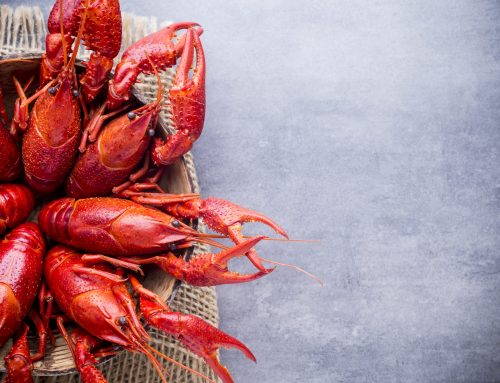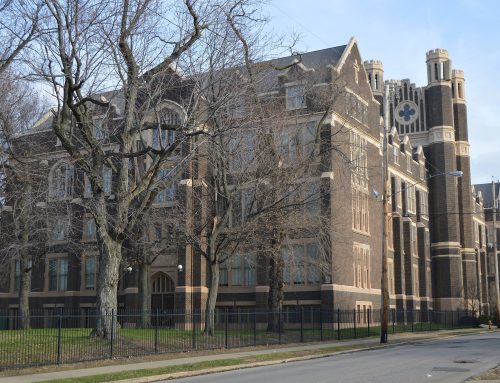In the hills of Appalachia in western Pennsylvania lies a bruised, stripped and timbered town of miners, mill workers and farmers called Sidle Creek. Award-winning author Jolene McIlwain’s debut collection Sidle Creek unearths themes of class, health, trauma and the unexpected human conditions that happen in close-knit communities. To be released by Melville House on May 16, 2023.
By Jolene McIlwain
Eminent Domain
Cheezer worms up behind me, covers my eye sockets with his cold hands and breathes into my neck the word, “Guess.” He has something to tell and he loves rumor so much it makes him tremble; when he spreads it, his fingers always fiddle at his wa- tery eyes, his watery lips. He always pulls at his cigarette, slows down, exhales, to make me wait. But tonight, I know the story. Still, I’ll let him tell it to me like it’s new because I know how the telling drops his clothes off quicker.
But let me put it to you so you know it right.
My pap—in the midst of all his talk about shifting power grids, the high and low voltage, about Marcellus shale, the dry and wet gas—mentioned they were going to rebuild the substation and made promises to replace and raise all those wood poles clean from Toby Furnace to Bennett’s Corners. But no matter how high you string those wires above the ground, a body still feels the prickly snap underneath them. Like mom’s little cuticle scissors nipping at my skin. First time I walked there I thought sure bugs were biting at my ankles. I mean I swore it. Checked my skin for red bites. Fire ants threading my hairs off. But nothing. And the grass was extra slippy, even when it wasn’t damp.
We’d take guys out there through that grass to the shed, to party, to forget we were stuck.
The shed was smack dab under the power lines. We had some good times there, I’m telling you. The guys chirping like goslings, talking about shooting up whitetails, trapping bunnies, fishing mon- ster trout at the Sidle, lifting the bodies of their Fords and Chevys, un- til we filled their mouths with Henny and Red Bull. After a few, they always swayed their words out, got quiet and cuddly. Whispery and soft. But then some Suit from the company put up a No-Trespassing sign and we moved our party to the old baseball dugouts for a while.
Then we got kicked out of there, too.
The shed’s now a crime scene and we lost our spot. Someone’s been killing cats and storing them in there. Cats. Sharkie Smail’s ex-con uncle said there was over two hundred in there.
I know the guy who’s doing the killing and I know why. Pap told me when he was lit on homemade pruno Sharkie’s uncle taught him to make.
This guy doing it thinks the cats are the devil.
This place can do that to you. I’ve seen it do worse to smart people.
Cheezer pulls his hands away and says, “Cats strung on lines, gutted, little wilting whiskers all pointing straight to Hell. Can you believe it? Don’t it just make you sick? Don’t it just break your heart?”
I nod and kiss his neck. I feel how warm he is in certain places and he says, “Who you think could do that?”
“No idea,” I say. It’s always better to keep him pondering some- thing when we get to it. And when we’re done and he’s tugging his jeans back on and I’m worrying he just shot something that might grow up in me, I have other things to mull over, too. Because as much as he’s nice and handsome in a lonely kind of way and I can picture staying here and having a life, I know I have to hop in my car and drive far as I can get if I want to ever be anything that ain’t a few steps away from crazy
The Fourth
Heat lightning. Mid-summer. Nothing to fear. Storm’s not coming. Just the lightning flashing the sky. Aunt Meg, Aunt Mo, and Mom gather up the last of the coconut-frosted cupcakes; the only brownies left are the dried-out ones with nuts. They roll the tops of chip bags, clip them with clothespins from the line while we chew the juice out of wax-bottle candy and hit shuttlecocks high into the sky. Dad folds lawn chairs and leans them against the porch.
The light of his cig makes a string path in the deep dark while fire- flies dot around him. He’s laughing at Uncle Hank who’s sauced on something more than beer, who’s singing, who’s talking about heading down to the Eagles to sign the book.
“They open on the holiday?” Aunt Mo asks, singsong voice. Aunt Meg shakes her head at Uncle Hank, “You’ve had enough, I’d say.” “What?” he says.
They’ve probably hit the Echo Spring. Even Uncle Ron looks mellow. I see him smiling a bit by the firelight when Dad calls out, “Hey Uncle Serious, gonna help clean up?” Uncle Ron shakes his head, crosses his ankles, and takes another sip. He smiles and shakes a finger at his Ronnie and Rick sneaking beers from deep in the metal coolers.
Out of nowhere a brilliant Queen Anne’s lace lights-up-hu-mungous the sky, then the boom. I watch a line of light zip-wiggle from the treetops to the middle of the big smoky afterburn, blooming again, this time into a blue Allium. Then that boom.
My cousin Keith pretends he’s been shot. He falls to the ground. I don’t understand at first and then when the next four blooms come together in the sky I’m ready—wait for it—BOOM, BOOM, BOOM, BOOM—and I hold my hand over my heart and fall to the ground. So does my brother and my other cousin, Michelle.
Our moms run to us. They think we’ve been hit. No, they want us to stop. They keep looking back at Uncle Ron, at Aunt Mo patting his knee, as they pull us along with them to round up my oldest cousins from in the house, Beth and Linda. They hand them the smoke bombs and snakes and we walk together to the al- ley, under the streetlight. Beth lights one of the small charcoal pills with the end of her cigarette and a snake grows. “He’ll be okay,” she says of Uncle Ron, but I can’t stop turning around to see where our moms have taken him. Is he going to be sick? “No, he just doesn’t like those big booms, that’s all. He’s okay.”
The smoke bomb bleeds green fog onto the alley, leaves a green stain on the asphalt. Another bleeds red. Something about the war. “Shell shock,” Linda tries to explain but I can’t quite, don’t quite, know.
Mom says it again, whispers it, “Shell shock,” when she’s scrubbing out the brownie pan, how hard she’s working the edges to get that chocolate from it.
I eat the last of the Jell-o, avoiding the pieces of pears in it. When I lick my finger, I taste the smoke bomb. When she says, “It’s these flashbacks he gets,” I feel the boom-boom-boom-boom of the fireworks still in my chest. I see Uncle Ron’s grimace and my Aunt Mo’s arm around his shoulders when we fall fall fall fall to the ground. I see Beth’s lit cigarette making those snakes dance, my brother trying to pick up the ash snake without breaking it into so many pieces, into nothing but dust.
They Didn’t Sound Like Themselves for Us
Father Deemer pointed to the paddle on the wall of his office. He’d make an example of us. He was disappointed in us, repeating how we were cream of the crop, honor students, youth group leaders, from hardworking families with parents expecting more from us. But we’d spied on Father Deemer whispering different words as he adjusted his starched clergy collar at faculty meetings. He’d said we were “outliers” and “surprisingly gifted” given from what, where, whom we’d come. Indigents.
We had to look up that word. We weren’t indigents. Our par- ents worked. Some of them two jobs. The day he’d said indigents was the same day we found the meaning of pizzle. We’d been study- ing Henry the IV. Falstaff’s lines: ‘Sblood, you starveling, you elf skin, you dried neat’s tongue, you bull’s pizzle, you stockfish! O, for breath to utter what is like thee! You tailor’s-yard, you sheath, you bowcase, you vile standing tuck—”And it was this word, pizzle, that dropped us into the office for we’d said it on the announcements—made it “Word of the Day.” Swapped out didapper. Father Deemer had come up with didapper— he was an avid birder. Students wrote pizzle on the boards, made up songs about pizzles, called each other pizzles until, as the rumor went, the biology teacher, Ms. Lissa Smith-Solomon, walked into Father Deemer’s office and said, “You know that means bull penis?” Just a month before, two other girls in the senior class got the wood for making the Word of the Day gossypol. The rule was clear: No words related to sex. Gossypol, as we found in our research, was a substance from the cotton plant, but it could be used for birth control.
We knew Father Deemer had had the woodshop teacher drill extra holes into the paddle to make it whistle and sting. The staff never paddled butts but backs of legs. Skin over hamstrings sported welted purple dots that turned yellow in a week. It only took a week.
We leaned into each other, listening to his lecture—“I’d thought better of you”—the sides of our hands touching, our jagged breaths synchronized.
Change of class squeals from mouths and tennis shoe rubber in the hallway, the droning sound of the secretary’s secretary voice on the phone.
They were calling in our fathers.
We knew our dads could not be easily reached. They were un- der the hill, sucking in limestone-dusted coal walls, at the face, bolting the ceiling. They were between union calls, stocking shelves at Delfry’s market, shifting tobacco from cheek to cheek, slicing card- board boxes open, careful not to puncture the merchandise. They were hauling cement, sniffing the leaking exhaust from a dry-rotted gasket, laughing at friends’ voices over the CB, dodging bears who wanted to flag them down, fine their asses for some silly thing like a dim taillight.
“Just give them the wood. I don’t have time to come in and talk this over.” That’s what our dads would surely say, should the secretary somehow get in touch.
They showed, though. One of them couldn’t get out from un- der the hill until second shift came—they were in deep on this cut, the man-trip was slow, and he was a bolter—but he made it.
The “why would you do this” piled up in the corners of their eyes, in their pursed lips, in the way they didn’t know what to do with their hands as they listened to Father Deemer explain what we’d done. They shifted on the wooden bench, picked at a piece of dried cement or a nip of tar on their jeans. Their boots seemed too big for their feet, dusty laces weak behind their hooks, ready to give.
The skin on their hands callused, cracked, stained with oil or grease or dirt that wouldn’t come clean. They nodded in unison, clearing their throats.
“Does it have to be the wood?” one of them said, his voice as far away as the coal tipple, the deep freeze at Delfry’s store, the highway’s dusty weigh station. They’d all threatened the belt many times, but they’d never laid it upon our skin. “It’s just a word.” But we all knew, sitting in that office there, how much words, how you said them, mattered.
Father Deemer said, “I suppose detention could be an option as long as this kind of behavior never ever happens again.”
“It won’t,” they said, shaking their heads too far left and right, jumping up from the bench, nearly tripping to his desk, to shake Father Deemer’s hand.
Father Deemer raised his, told them, “Sit back down.” They did. And that’s when they apologized for us, made promises, bit at the sides of their cheeks. They spoke in words that stumbled out of their mouths for lack of use, carefully hitting every syllable, no elisions, the –ing, we always wished they’d use, clear and ringing in our ears.
Jolene McIlwain’s fiction has been nominated for the Pushcart Prize and appears in West Branch, Florida Review, Cincinnati Review, New Orleans Review, Northern Appalachia Review, and 2019’s Best Small Fictions Anthology. Her work was a finalist for 2018’s Best of the Net, and a semifinalist in Nimrod’s Katherine Anne Porter Prize. She was born, raised, and currently lives in a small town in the Appalachian plateau of Western Pennsylvania.






